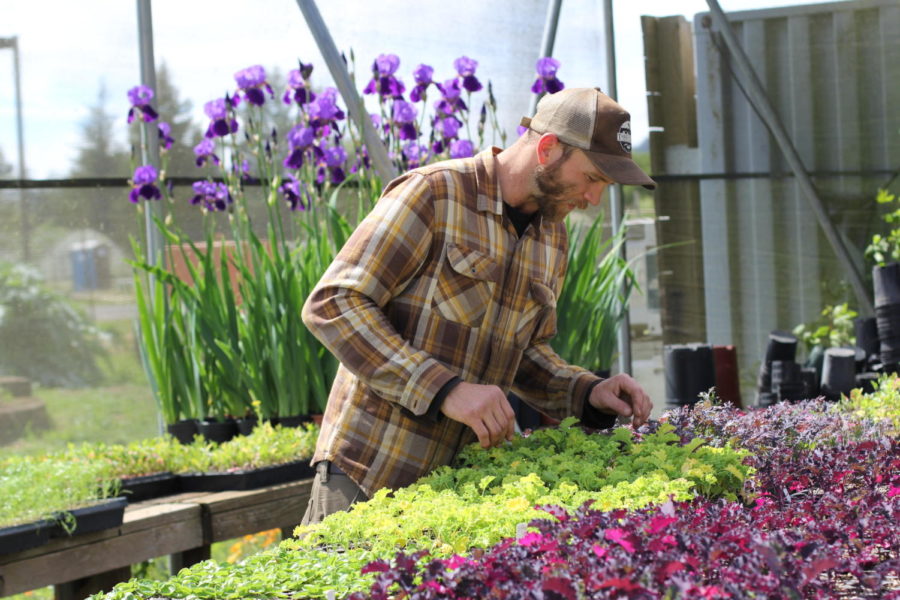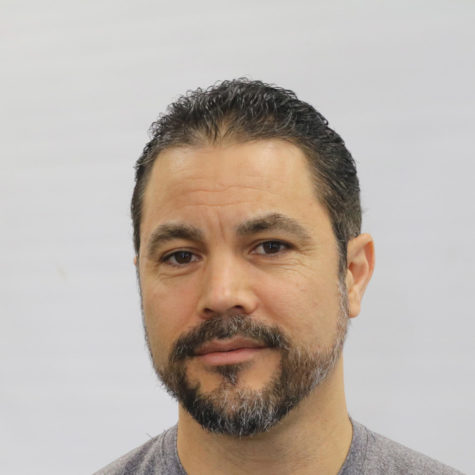Learning in a dirty environment is an unlikely choice for most students. But when it comes to growing nutritious food, the fields are the best place to learn.
Before becoming interested in farming, Donald Pivec managed large coffee shops in the East Bay for 15 years.
“I felt I was asking people to do more and more for less and less,” said Pivec. “I didn’t think I would of ever put myself in that position and I didn’t feel good about it.”
Pivec soon left the coffee industry, and after several seasons of producing his own food, he decided to enroll at Santa Rosa Junior College, taking classes in sustainable agriculture and natural resource management..
“Even though I enjoyed studying natural resource management, I felt sustainable farming was where my heart was at,” Pivec said.
After several semesters at Shone Farm honing his skills, Pivec was hired as a farm manager at Lotus Feed Farm and Retreat in Occidental. He said he found out about the job through one of the instructors at Shone Farm.
“It’s really hard for someone to acquire a farm manager job without any farming experience,” Pivec said. “I really learned a lot about how farming systems operate through the courses taught at Shone Farm and without that knowledge I don’t think I would of been able to get the position or be successful at my current job.”
Pivec said that the ability to take classes on the farm along with classroom lectures benefit students enrolled in the agriculture programs.
“You’re not just learning about theories in a class and talking about putting them to use in the field,” Pivec said. “You’re actually working out here and you get to really see the projects play out.”
Joey Smith gardening coordinator, at Shone Farm, teaches hands-on farming skills to SRJC students. Smith ownes and runs, Let’s Go Farms in Santa Rosa. His experience in running his own farm has a huge impact on students learning at Shone Farm.
“What the students learn here are some of the most practical skills there are, due to the fact that we all have to eat.” Smith said. “It’s a great place to learn sustainable farming because we have amazing instructors that have years of invaluable experience and knowledge to share.”
Leonard Diggs, Shone Farm manager, has worked there for more than 19 years. Diggs is in charge of organizing and coordinating the operational activities at the farm.
“We are helping to train students who are interested in our programs whether it be viticulture, crop production, sustainable farming, maintaining the forests or maintaining the parks,” said Diggs. “This is a great place to get a lot of practical, hands-on experience.”
Diggs said that one of the courses in the sustainable farming program is a crop plan production course where students learn the basic principals of not only growing crops but also how to plan for their annual production cycle.
“We teach the students how you rotate so that you can maintain the basic principles of sustainability,” Diggs said. “This means you don’t always put the same crop in the same location every year. You rotate it around in your field as a practical practice for sustainable agriculture.”
Pivec said the program taught him practical skills, and feels Shone farm, where a lot of the classes are taught and gives students the opportunity to do their own special projects, is what makes it unique.
The SRJC Enterprise Project (agri 56) allows students to grow and market their own produce within the farm. Students learn from mistakes that normally would ruin a farmer trying to start his own business.
“It allows farmers to be able to make those costly mistakes in a safe space,” Pivec said.
Shone Farm is a 365-acre outdoor learning laboratory for SRJC’s agriculture and natural resource programs. The land includes a 120-acre forest, 100 acres of pasture, 70 acres of vineyards, 12 acres for crop production, and 4 acres of olive and apple trees.




